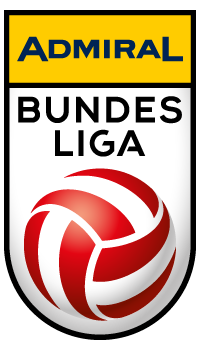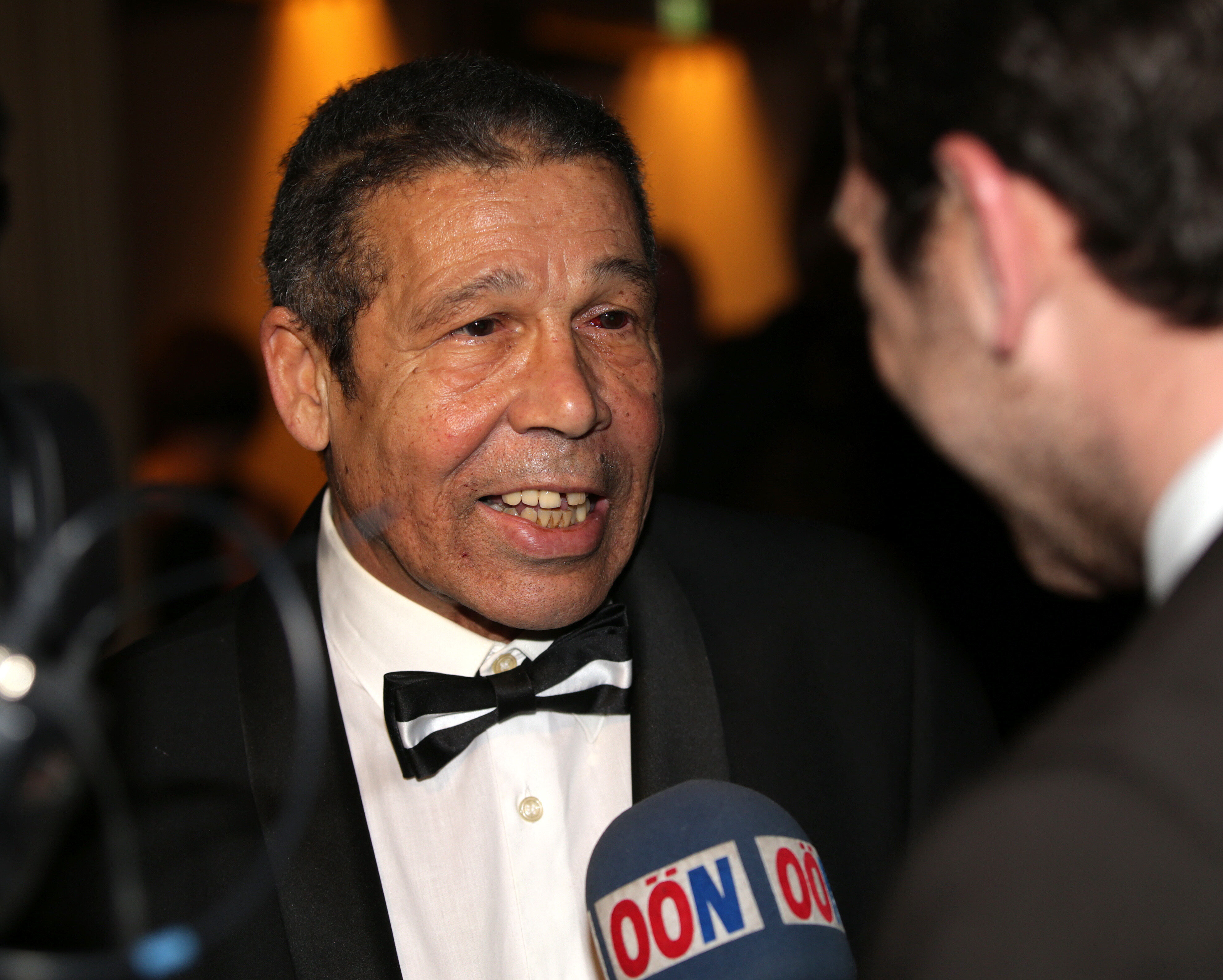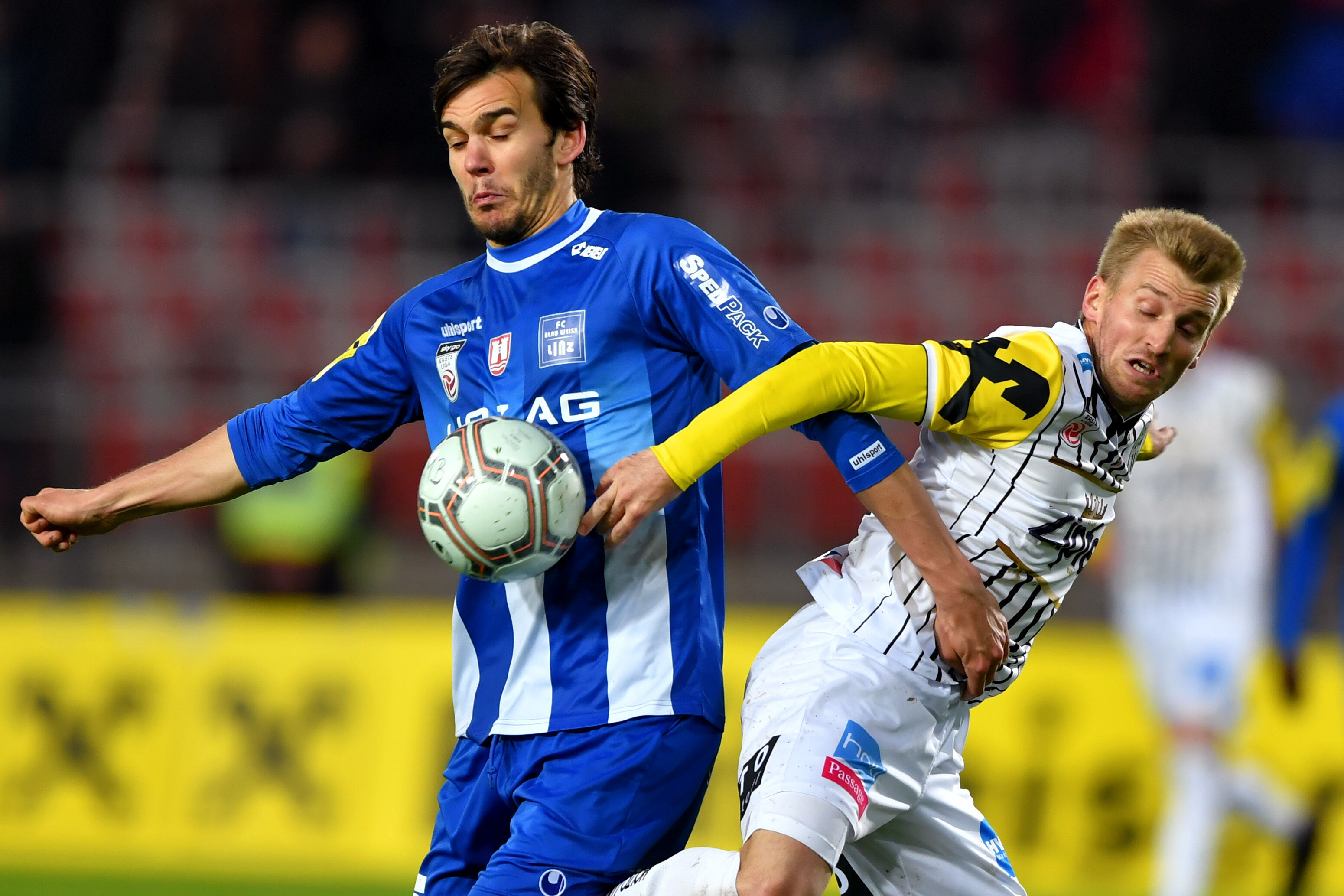Founded: 1908
Home ground: Raiffeisen Arena
Location: Pasching, Upper Austria
Colours: Black/White
Manager: Andreas Wieland
Website: www.lask.at
The history
Based in the country’s third-largest city Linz, former double-winners LASK are one of the bigger names in Austrian football – but have spent much of their recent existence yo-yoing between the top two divisions, and even dropped down to the third tier in 2012. It has been almost entirely uphill since then, however, with two promotions in the space of five seasons taking the club back to the Bundesliga in 2017. In recent years, they have established themselves as one of the major players in the Austrian top flight, reached the ÖFB-Cup final and enjoyed some memorable European campaigns too.
Early highs and lows
Founded in 1908 as Linzer Sport Klub (LSK), the club changed its name to Linzer Athletik Sport Klub in 1919, shortly after the First World War had come to an end. LASK, as they are widely known, were the dominant force at state level during the interwar years, winning 10 titles between 1924 and 1939. Their so-called ‘Golden Year’ came in 1931, when they simultaneously became Austrian amateur champions, Upper Austrian state champions & Upper Austrian cup winners.
Their first taste of life in the Austrian top flight was during the 1940/41 season, though by this point the league had been renamed the Gauliga Ostmark following Austria’s annexation by Nazi Germany. LASK struggled with many of their players away on military duty, however, finishing bottom of the pile without a single point to their name and suffering a club-record defeat – a crushing 21-0 loss to Austria Vienna – along the way.
Breaking the capital’s stranglehold
The yo-yo years properly got under way after the conflict, with LASK winning the second division title in 1950, going down in 1954 and winning promotion again in 1958. Their finest hour undoubtedly came in 1964/65, as a side inspired by forward Helmut Köglberger – later recognised as the club’s Player of the Century – won both the league and cup for the first time. With the cup already in the bag after a two-legged victory over Wiener Neustadt, LASK beat First Vienna on the penultimate day of the league season. That result, combined with defeat for rivals Rapid Vienna in Graz, saw them clinch the title – a feat that was doubly impressive as they were also the first-ever club from outside the capital Vienna to become champions of Austria.
The spectre of relegation again loomed large in 1978, but LASK were back within a year and this time stayed in the top flight for another decade – during which time they participated in the old UEFA Cup on multiple occasions. In 1985/86, a goal from Johann Gröss inspired a particularly memorable 1-0 victory over Italian giants Inter Milan, whose side included the likes of Walter Zenga, Marco Tardelli and Karl-Heinz Rumminegge. They went on to lose the second leg 4-0, but that did not take the shine off beating a former European champion that had multiple members of Italy’s 1982 World Cup-winning side in their squad.
Mergers and rivalries
Having gone down in 1989, LASK returned to Austria’s top table five years later following a run of 1,241 minutes without conceding a goal. They were promoted along with their city rivals FC Linz, with whom they were later controversially merged in 1997. Funnily enough, the two clubs played each other in the penultimate round of that season – 10 days after the merger – and LASK lost 3-0. But it was their name that would live on, while FC Linz disappeared from the football map for the best part of the next two decades.
Angered by the disappearance of their club, many FC Linz fans supported the creation of a phoenix club, Blau-Weiss Linz, which was founded a couple of months after the aforementioned merger in July 1997. The two clubs have since developed a heated cross-city rivalry, with LASK coming out narrowly on top: they have four wins, four draws and two defeats in derby fixtures, although they have not faced each other competitively for four years on account of being in different divisions.
License rejection and a rapid rebound
More relegations and promotions have followed, but a Bundesliga license rejection in 2012 saw LASK fall down to the regional third tier – meaning they were not playing in a national league for the first time since 1958. With the Linz outfit in turmoil, a group of investors calling themselves “Freunde des LASK” (Friends of LASK) bought the club from former owner Peter-Michael Reichel in 2013 and implemented an ownership model whereby anyone wanting to buy shares would have to pledge additional financial support too.
It has been mostly uphill for LASK ever since, with promotion to the second division occurring in 2014 and – following the appointment of former SV Ried coach Oliver Glasner the following year – and the club returning to the Bundesliga in 2017. A number of the players that inspired that rapid ascent through the divisions – the likes of Felix Luckeneder, Philipp Wiesinger, Lukas Grgic and Peter Michorl – are still with the club today.
Successes and surpassed expectations
LASK quickly established themselves in the top tier and qualified for Europe via a fourth-place finish, though they were eliminated by Besiktas in the Europa League qualifiers. They followed that up with a second-place finish the following year and were expected to run Red Bull Salzburg close in 2019/20, especially after finishing the winter season in top spot, but were docked points for a training infringement in the spring and their title tilt fell away after that. Their year-on-year progression continued the following season as they reached the ÖFB-Cup final. Red Bull Salzburg again stood in their way and proved to be too strong, however.
Those domestic successes have led to some amazing international nights for LASK, who are currently playing their third European campaign in succession. They beat PSV Eindhoven and Sporting Clube de Portugal 4-1, drew 3-3 with Tottenham Hotspur and ran Manchester United close at Old Trafford as well. This term, they are in the inaugural UEFA Europa Conference League and look odds-on to progress from a group containing Maccabi Tel Aviv of Israel, HJK Helsinki of Finland and Alashkert of Armenia.

The stadium
Having been forced to leave their long-term home at LASK-Platz – where they had played for almost half a century – in 1966 because the site was needed to build a higher education institution, LASK moved their home games to the Linzer Stadion, commonly known as the Gugl. It was familiar territory for the club, who had sometimes played their big matches there when a larger-capacity stadium was needed. It remained their home until they were promoted back to the Bundesliga in 2016/17, when a decision was taken to move to the Raiffeisen Arena – although they continued to play their European games at the Linzer Stadion.
Recognising a need for a higher capacity and improved facilities, and wanting a stadium of their own that was neither council-owned nor shared with rivals Blau-Weiss Linz, LASK presented their plans to build a new stadium on the site of the Linzer Stadion in July 2020. Once built, it will be a UEFA Category 4 stadium and will have a capacity of 20,234. The state-of-the-art stadium, which will also be called the Raiffeisen Arena, includes expanded training facilities, meeting and office rooms, a business club, a chapel, a restaurant and the largest children’s play area in Europe. Completion is expected in 2023.

The team
LASK are currently between coaches, having dismissed the previous incumbent Dominik Thalhammer in September following a poor run of results. Thalhammer was replaced on an interim basis by his assistant Andreas Wieland, who has been charged with leading the team until the winter break.
The Linzers, who consistently play in their trademark 3-4-3 formation, have a squad brimming with quality, with the likes of goalkeeper Alexander Schlager, defenders Philipp Wiesinger and Petar Filipovic, midfielders Peter Michorl and James Holland, and winger Thomas Goiginger the more experienced heads in the squad. They are complemented by an excellent crop of young players, with defender Yannis Letard, midfielder Hyun-Seok Hong and forwards Marko Raguz and Mamoudou Karamoko all ones to watch.
They have had to endure some setbacks on the personnel front this year, however. The sale of key players Gernot Trauner (defender) and Reinhold Ranftl (midfielder) to Dutch side Feyenoord and German Bundesliga 2 club Schalke 04, as well as the losses of Karamoko, Raguz, Gruber, Filipovic, Letard and Wiesinger to injury for extended periods of time this season, have made for a new-look LASK side– and that lack of continuity has been clearly visible in the opening months of the campaign.
Vocabulary:
|
yo-yo team |
Fahrstuhlmannschaft |
|
interwar years |
Zwischenkriegsjahre |
|
stranglehold |
|
|
in the bag |
im Sack |
|
spectre of relegation |
Abstiegsgespenst |
|
take the shine off something |
etwas den Glanz nehmen |
|
merger |
Fusion |
|
penultimate |
vorletzter |
|
disappear from the map |
von der Landkarte verschwinden |
|
phoenix club |
Nachfolgeverein |
|
in turmoil |
im Umbruch |
|
dock points |
Punkte abziehen |
|
odds-on |
sehr wahrscheinlich |
|
state-of-the-art |
supermodern |
|
incumbent |
Inhaber |
Die Kollegen von "The Other Bundesliga" porträtieren in regelmäßigen Abständen die Klubs der Liga - auf Englisch mit der dazugehörigen Vokabelauswahl. In dieser Serie sind bisher folgende Klubporträts entstanden: SK Austria Klagenfurt, SK Rapid Wien, SK Sturm Graz, FK Austria Wien, RZ Pellets WAC, FC Red Bull Salzburg,WSG Tirol SV Guntamatic Ried, FC Flyeralarm Admira, TSV Egger Glas Hartberg



























